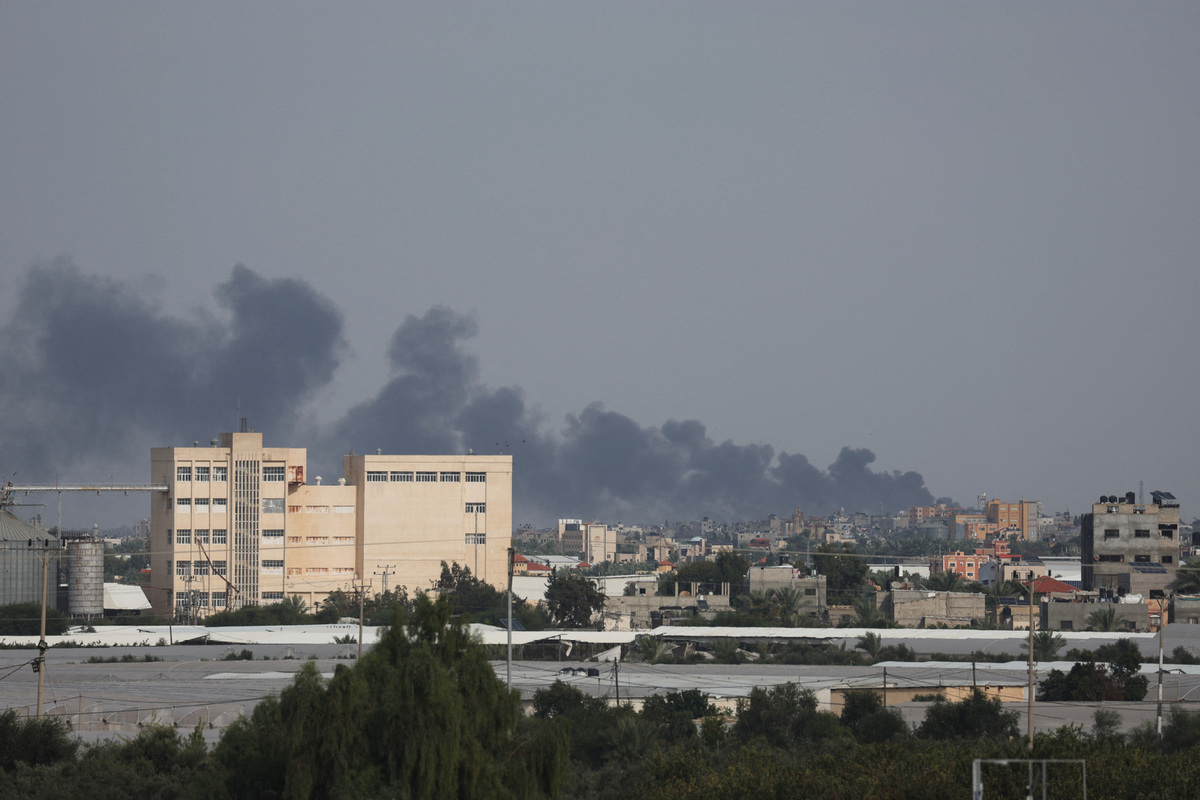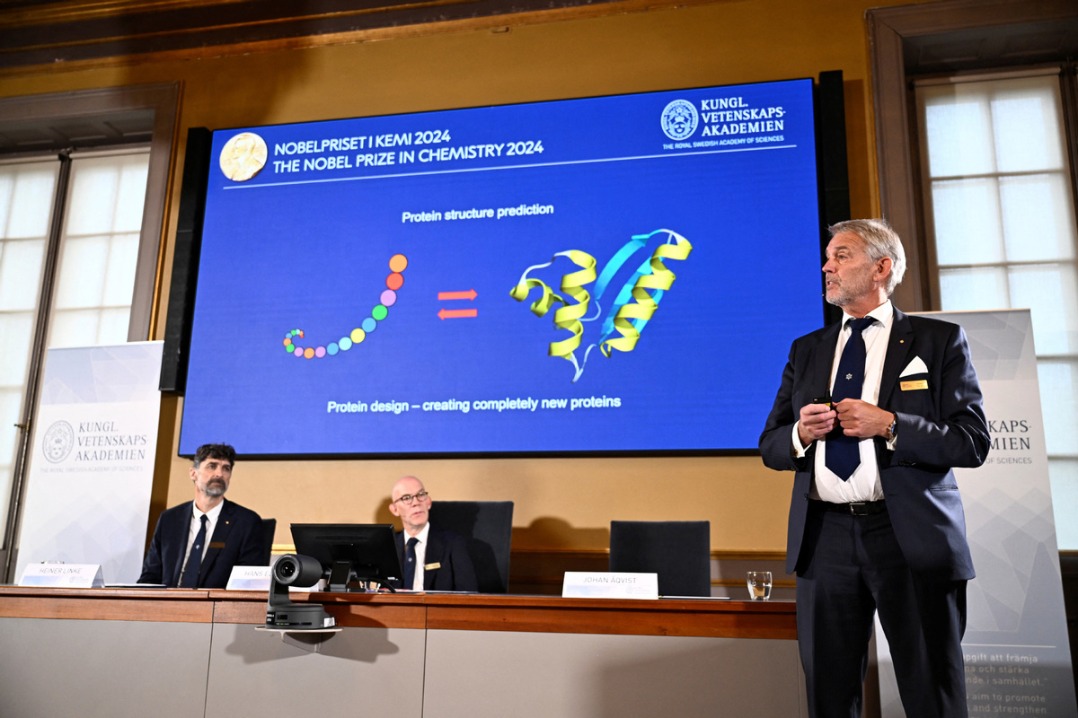Israel-Palestine: A China brokered peace?
By John Queripel | chinadaily.com.cn | Updated: 2023-12-21 13:26

With the horrendous conflict currently happening in Gaza with over 20,000 dead, mainly innocent civilians, it is a good time to ask, can intractable conflicts be brought to an end?
In the long Israel-Palestine conflict, peace has seemed impossible. From 1947, when the newly created UN resolved to establish two states, Israel and Palestine to co-exist in the former British mandate, and the declaration of the Israeli state the following year, there has been no respite from war. One ‘state,’ Palestine, still doesn’t officially exist. Rather than peace, there has been instead, a war of attrition, often, as currently, fanning into hot conflict, over which time Israel has been able to extend its dominance at the expense of the Palestinians.
With hatred deepening can two co-existing states, Israel and Palestine, ever become a reality? Is peace possible?
In asking such, we need to recognize that particularly since October 7 any abiding peace has got that much harder, given hatred has deepened and violence has intensified. Israeli politics has taken a sharp turn to the extreme right with the most heinous vitriol coming even from the mouths of its leaders, while on the Palestinian side, the bombings, destruction and mass slaughter are bound to only intensify resistance. Current Israeli policy is highly likely to breed more Palestinians prepared to take up arms, either for Hamas or other more extreme groups.
Yet, to answer with a negative to the possibility of peace leaves us with something too terrible to contemplate. Peace must be possible, even where conflict has been long and deep.
During the past year China, viewed as an honest broker by both parties, was able to bring Saudi Arabia and Iran to the table, bridging what seemed to be an insurmountable divide. Both nations have since been admitted into BRICS.
Relations between Saudi Arabia and Iran had been acrimonious from the time of the 1979 Iranian revolution, with Iran viewing Saudi Arabia as a US proxy in the region. The Syrian war further heightened tensions between the two sides with Iran supporting the Assad government, while the Saudis supported the anti-government forces.
The fragile relationship broke completely after the January 2016 storming of the Saudi Embassy in Iran after the Saudi execution of Shia leader cleric Nimr al-Nimr. In response, Saudi Arabia ordered all Iranian diplomatic staff to leave the country within 48 hours.
This bitter division between the two lands destabilized several Middle Eastern countries, including Iraq, Syria, Lebanon, Yemen and Bahrain.
In March 2023 to the clear surprise of many China was able to bring both countries together.
Faced with political and economic isolation after the US withdrew from a landmark deal curbing Tehran’s nuclear program, Iran’s Supreme Leader Ayatollah Ali Khamenei saw an opportunity to ameliorate such by linking with Saudi Arabia. Meanwhile, the Saudis, having lost confidence in any US commitment to shared regional security concerns, desired to bolster ties with China, which had retained good relations with Iran.
Chinese Foreign Minister, Wang Yi, noting a ‘wave of reconciliation’ which has broken out across the Middle East, has pledged to, ‘continue to support countries in the Middle East in exploring a development path that suits their own national conditions, strengthening communication and dialogue, adhering to unity and self-improvement, and realizing good-neighborliness and friendship.’
Just last week, the Deputy Foreign Ministers of both Saudi Arabia, Waleed Elkhereiji, and Iran, Ali Bagheri Kani, met in Beijing to further cement the rapprochement. In a clearly pointed reference to the US the meeting’s host, Wang Yi called for the two countries to ‘eliminate external interference’ from their relationship, adding, ’The Middle East can no longer become a geopolitical arena for the global powers, and the fate of the Middle East should be in the hands of the peoples of the countries of the region.'
Wang also renewed Beijing’s call for ‘an immediate ceasefire’ in the Israel-Gaza war, concluding, ‘China has always stood by Arab and Muslim countries and supported the restoration of the legitimate rights of the Palestinian people. The most urgent task is to promote a ceasefire in Gaza, to stop the war, to promote humanitarian assistance, and to resume the Palestinian-Israeli negotiations.’
With US fulsome support for Israel meaning it is playing itself out of the game, an opportunity in the Middle East again arises for China to bring seemingly intractable adversaries together. Having developed good relations with Israel and the Arab world, China again could bring about momentous change to a region long marked by discord.
Rapprochement, peace and reconciliation are possible. No conflict is intractable, even that between Israel and Palestine. The alternative to such belief is too ghastly to contemplate. One hopes China can make it happen.
John Queripel is a Newcastle Australia based author, historian and social commentator.
The views do not necessarily reflect those of China Daily.
If you have a specific expertise, or would like to share your thought about our stories, then send us your writings at opinion@chinadaily.com.cn, and comment@chinadaily.com.cn.
























